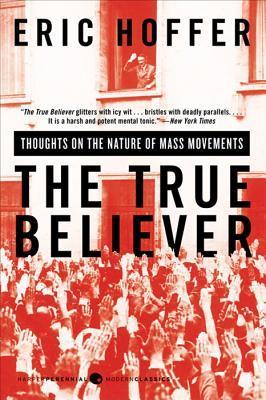More on this book
Community
Kindle Notes & Highlights
by
Eric Hoffer
Read between
February 6 - December 24, 2017
A man is likely to mind his own business when it is worth minding. When it is not, he takes his mind off his own meaningless affairs by minding other people’s business. This minding of other people’s business expresses itself in gossip, snooping and meddling, and also in feverish interest in communal, national and racial affairs. In running away from ourselves we either fall on our neighbor’s shoulder or fly at his throat.
A religious movement may develop into a social revolution or a nationalist movement; a social revolution, into militant nationalism or a religious movement; a nationalist movement into a social revolution or a religious movement.
The same types who swell the ranks of a rising mass movement are also likely to avail themselves of a chance to emigrate.
It is usually those whose poverty is relatively recent, the “new poor,” who throb with the ferment of frustration.
We are less dissatisfied when we lack many things than when we seem to lack but one thing.
The decline of handicrafts in modern times is perhaps one of the causes for the rise of frustration and the increased susceptibility of the individual to mass movements.
It is futile to judge the viability of a new movement by the truth of its doctrine and the feasibility of its promises. What has to be judged is its corporate organization for quick and total absorption of the frustrated.
For, as will be shown later (Section 106), the stability of a regime requires the allegiance of the intellectuals, and it is to win them rather than to foster self-sacrifice in the masses that a doctrine is made intelligible.
Passionate hatred can give meaning and purpose to an empty life. Thus people haunted by the purposelessness of their lives try to find a new content not only by dedicating themselves to a holy cause but also by nursing a fanatical grievance. A mass movement offers them unlimited opportunities for both.
“Vanity,” said Napoleon, “made the Revolution; liberty was only a pretext.”
A mass movement with a concrete, limited objective is likely to have a shorter active phase than a movement with a nebulous, indefinite objective.


